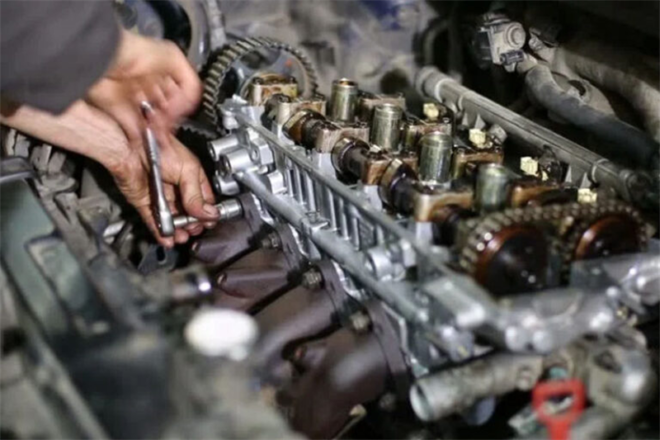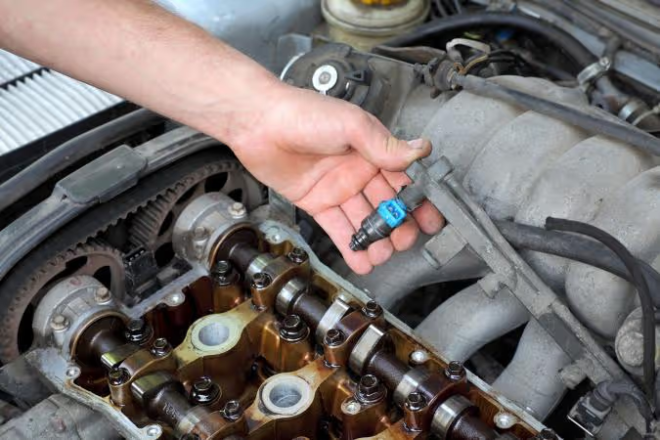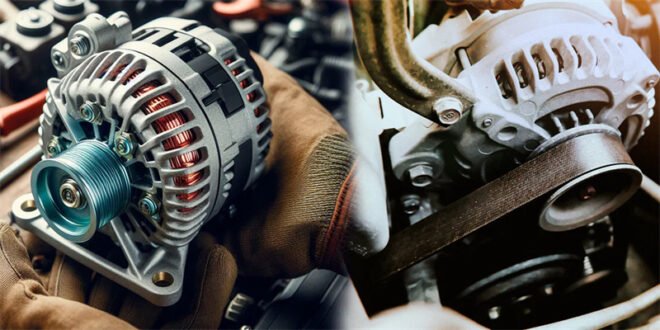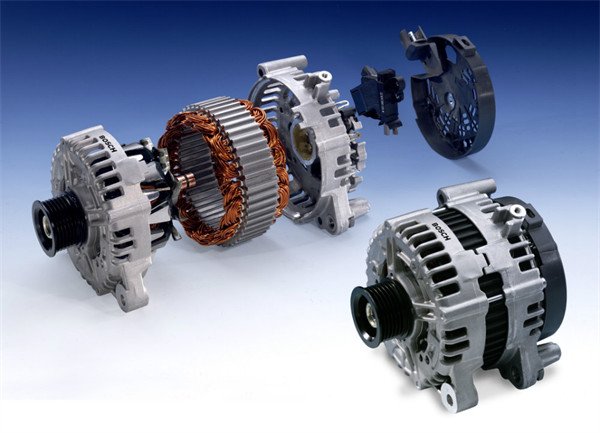Introduction: A Sneaky Car Expense You Didn’t See Coming
Your car has been running smoothly, but suddenly, you notice that something’s off: the lights are flickering, your battery warning light is on, and your car struggles to start. Could it be time to replace the alternator? If you’ve found yourself wondering what this repair will cost you, you’re not alone. The price of alternator replacement can vary widely, depending on various factors like the make and model of your car, the labor involved, and where you go for the service.
In this article, we’ll break down everything you need to know about alternator replacement cost, what affects the price, how to avoid costly mistakes, and whether it’s possible to handle this repair yourself. Let’s dive into the details, so you’re fully prepared when it’s time to take your car in for an alternator replacement.
What Is an Alternator, and Why Does It Matter?
Before we get into the costs, let’s clarify what an alternator does in your vehicle. The alternator is a crucial component of your car’s electrical system. It’s responsible for charging the battery while the engine is running and powering your car’s electrical systems, such as the lights, radio, and air conditioning. Without a functioning alternator, your car would be unable to charge the battery, which could lead to a dead battery and total electrical failure.
If you’re noticing strange electrical symptoms—like dimming headlights, difficulty starting your car, or unusual dashboard warning lights—it might be time to check on the health of your alternator.

How Much Does Alternator Replacement Cost?
1. The Average Cost of Alternator Replacement:
On average, alternator replacement costs between $500 and $1,000. This range can fluctuate based on several factors, including your car’s make and model, location, and whether you go for an original equipment manufacturer (OEM) or aftermarket part.
- Parts Cost: The price of an alternator itself can range from $200 to $600 for a typical vehicle. Luxury vehicles or cars with more advanced electrical systems can expect to pay more.
- Labor Costs: Labor charges typically make up a significant portion of the replacement cost. On average, labor costs for alternator replacement can range from $100 to $300, depending on the complexity of the job and the shop’s hourly rate.
2. Additional Costs to Consider:
While the core alternator replacement typically includes the part and labor, there may be additional costs to keep in mind:
- Diagnostic Fee: Some shops may charge a diagnostic fee, especially if you’re unsure whether the alternator is indeed the problem. This fee typically ranges from $50 to $150.
- Additional Repairs: If your alternator has caused damage to the battery or other components, you may need additional repairs, which can increase the overall cost.
- OEM vs. Aftermarket Parts: OEM parts tend to be more expensive, but they are made specifically for your car’s make and model. Aftermarket parts are usually less costly but may not offer the same level of quality or longevity.
Factors That Affect the Cost of Alternator Replacement
Several key factors influence how much you’ll end up paying for an alternator replacement:
1. Vehicle Make and Model:
The type of car you drive plays a major role in the cost. Economy cars typically have lower-priced alternators and simpler designs, while luxury cars or vehicles with complex electrical systems (like hybrids) can significantly increase the cost. High-end brands such as BMW, Audi, and Mercedes-Benz may have alternators priced upwards of $800, while more common vehicles like Honda or Toyota are generally on the lower end of the spectrum.
2. Labor Complexity:
Some cars are designed with easy-to-replace alternators, while others may require more extensive labor. For example, in some vehicles, the alternator is easily accessible, and it only takes an hour or two to replace. However, for cars with limited space in the engine compartment, the repair could take longer, increasing labor costs.
3. Geographic Location:
Where you live can also impact the cost of alternator replacement. In areas with a higher cost of living, such as large cities or regions with high demand for auto repairs, prices tend to be on the higher end of the spectrum. In more rural or lower-cost areas, you might find that the same repair is more affordable.
4. Type of Replacement Part:
You’ll have the option to choose between new, refurbished, or remanufactured alternators. New alternators are the most expensive, but they typically come with warranties. Refurbished or remanufactured alternators can be a cheaper alternative, but they may not last as long as new ones.
Can You Replace an Alternator Yourself?
If you’re handy with tools and have a good understanding of your car’s electrical system, it may be possible to replace the alternator yourself. However, this is not a beginner-level DIY project, and you should only attempt it if you have prior experience with car repairs.
Replacing an alternator involves disconnecting the battery, removing the serpentine belt, unbolting the alternator, and then installing the new one. Depending on your car model, this could take a few hours. If you don’t feel confident, hiring a professional is always the safest option.
Pros of DIY Alternator Replacement:
- Potential to save money on labor costs.
- Complete control over the quality of the parts used.
Cons of DIY Alternator Replacement:
- Risk of damaging other components if you don’t follow the steps correctly.
- You may not have access to the same high-quality tools or parts as a professional mechanic.
- Limited warranty on parts you buy on your own.
How to Save on Alternator Replacement Costs
If you’re looking to minimize the cost of replacing your alternator, here are a few tips:
1. Shop Around for Quotes:
Don’t settle for the first quote you receive. Shop around and get estimates from multiple auto repair shops to compare prices. Make sure the quotes are for the same level of service, including parts and labor.
2. Consider Refurbished or Remanufactured Alternators:
If you’re on a budget, consider opting for a refurbished or remanufactured alternator. While these parts can be a little cheaper, they still provide good functionality and often come with warranties.
3. Do It Yourself (If Possible):
If you’re experienced with car repairs, replacing the alternator yourself could save you a significant amount on labor costs. However, be sure to do your research and have the proper tools before starting.
4. Take Advantage of Discounts and Coupons:
Look for promotions, seasonal sales, or online discounts on alternators and repair services. Some shops offer special deals that can help reduce the total cost of the repair.
Conclusion: Be Prepared and Avoid Surprises
The cost of alternator replacement is an unavoidable but necessary expense if you want to keep your car running smoothly. By understanding the factors that influence the cost and preparing for potential extra expenses, you can avoid being caught off guard by a hefty bill. Whether you choose to go with professional help or attempt the repair yourself, the most important thing is ensuring that your alternator is replaced properly to keep your car’s electrical system functioning at its best.
By doing your research, comparing prices, and shopping smartly for parts and labor, you can get the alternator replacement you need without breaking the bank. And next time, when that battery light flickers on, you’ll know exactly what to expect!




